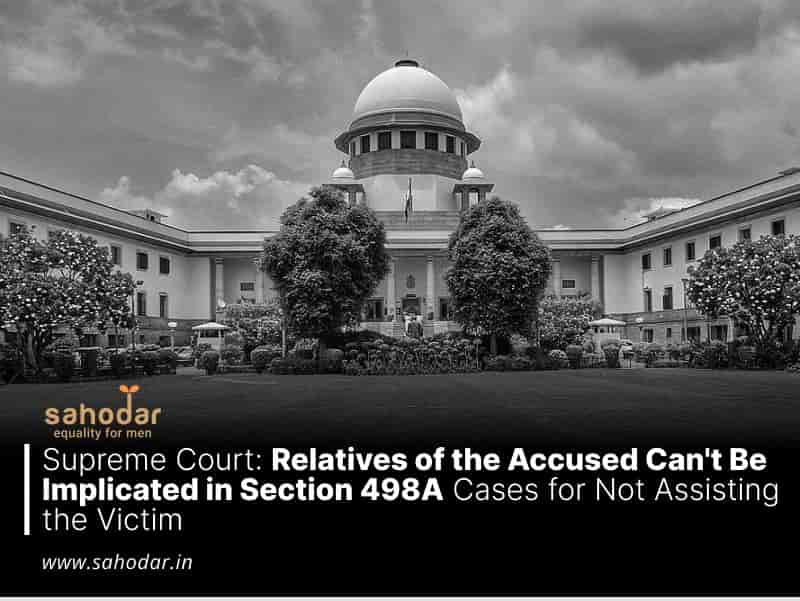The Court said that in criminal cases related to domestic violence, the complaint and charges should be specific as far as possible against each and every accused family member.
On Friday, the Supreme Court ruled that the family members of an individual accused of domestic violence cannot be held liable in a criminal case for failing to support the victim.
“There is a tendency in family cases where the complainant implicates family members of the accused who do not come to the rescue of complainant and remain as mute spectators. But this cannot constitute a criminal act without there being a specific act attributed to them,” the Court said.
The Bench comprising Justice BV Nagarathna and Justice N Kotiswar Singh emphasized that in domestic violence cases, complaints and charges against each accused family member should be as specific as possible.
“There may be situations where some of the family members of relatives may turn a blind eye to the violence of victim and may not extend helping hand but it does not mean that they are also perpetrator of domestic violence unless circumstances clearly indicate their involvement and instigation,” it added.
The Court emphasized the need for utmost sensitivity in handling genuine domestic violence cases. It also recognized that, since such offenses occur behind closed doors rather than in public, obtaining direct evidence may be challenging.
“What needs to be assessed is that whether such allegations are genuine and specific in criminal law attributable to such members of the family or whether it is merely a spill over or side effect of the emotional,” it added.
The Court was considering a petition concerning a case filed under Section 498A and 506 of the Indian Penal Code, along with Sections 3 and 4 of the Dowry Prohibition Act, 1961. Previously, the Telangana High Court had declined to quash the proceedings against the main accused’s maternal aunt and cousin.

